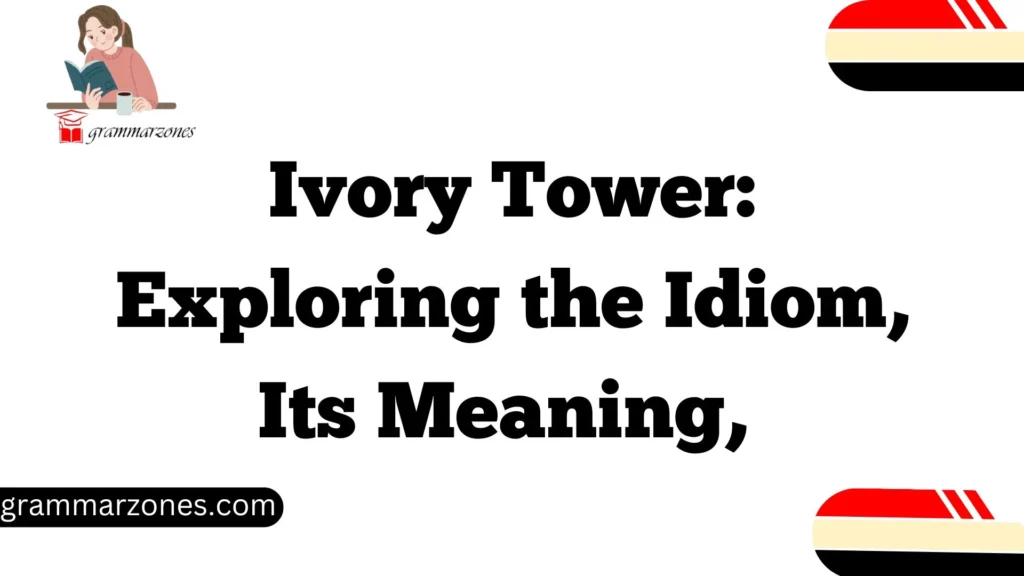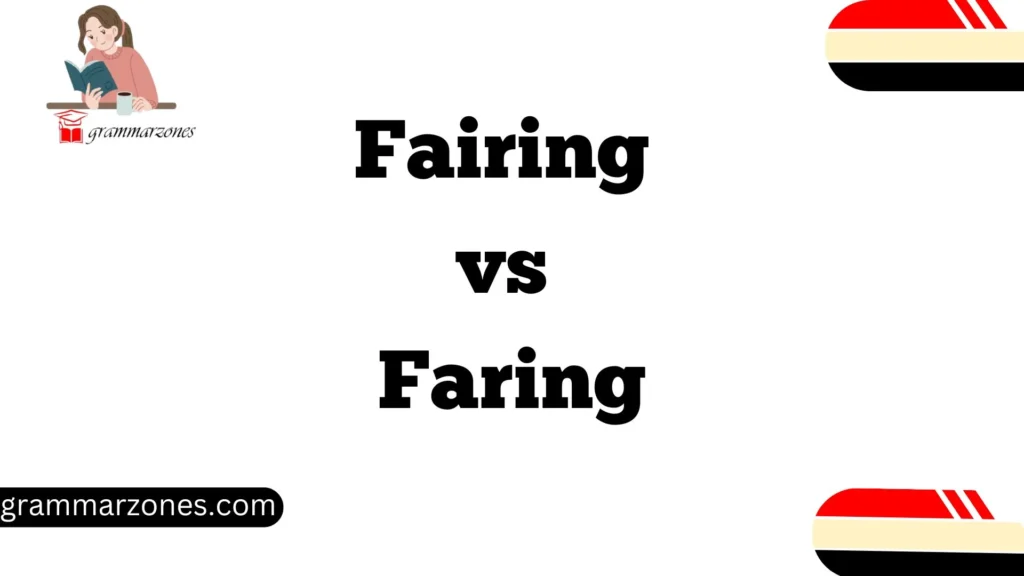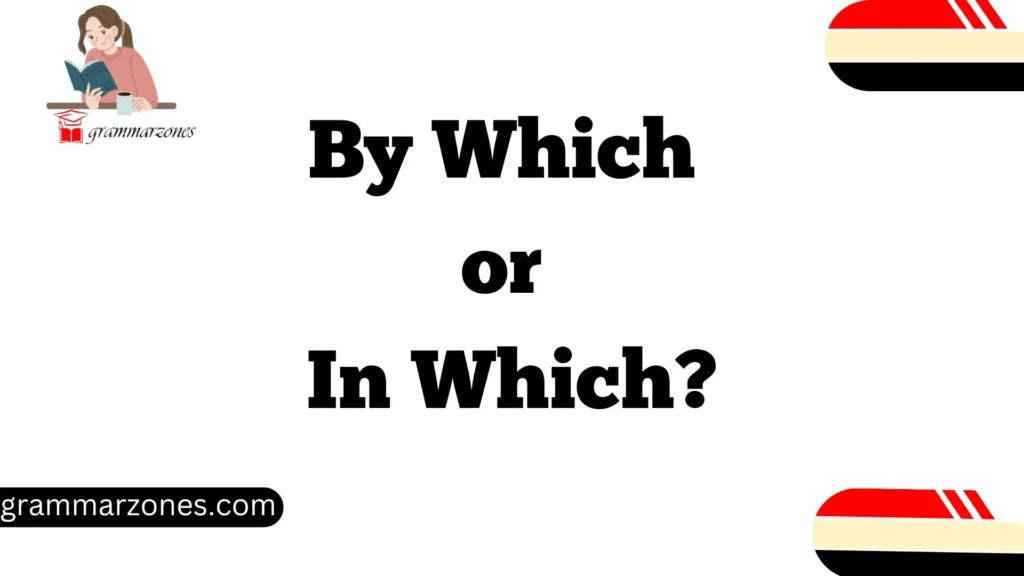The phrase “Ivory Tower” is one of those idioms that conjures up vivid imagery. It’s not just a figure of speech; it’s an expression laden with historical and cultural significance. From its literary roots to its pervasive presence in modern discourse, the idiom has evolved, and so have its meanings. Today, we hear it used in politics, academia, social media, and even pop culture, but do we truly understand it?
In this article, we’ll delve into the depths of the Ivory Tower idiom. We’ll explore its origins, its dual meanings, its psychological implications, and its impact on modern society. Through real-world examples, case studies, and in-depth analysis, we’ll unpack how this idiom shapes perceptions and how it remains relevant in today’s world.
So, grab a seat as we explore the history, the controversy, and the nuances of the Ivory Tower.
Origin of the ‘Ivory Tower’: Tracing Its Roots
The French Connection: A Historical Beginning
The Ivory Tower is often attributed to French literature, specifically the works of poet and novelist Alfred de Vigny. In his 1834 poem “La Tour d’Ivoire”, Vigny referred to the “ivory tower” as a symbol of solitude and isolation. In his poem, the tower was not a physical structure but a metaphor for intellectual detachment, where lofty ideas were free from the constraints of everyday life.
However, the idiom wasn’t widely recognized in English until it began circulating in the 19th century. This literary reference was eventually picked up by English-speaking scholars, and the term evolved into the figurative idiom we use today.
Adoption into English: The Shift in Meaning
As the idiom made its way into American English, its meaning began to shift slightly. While still carrying the original essence of intellectual isolation, it gradually took on more negative connotations. No longer was it solely a symbol of intellectual purity; it started to evoke ideas of detachment from the struggles and realities of the common people.
Breaking Down the Meaning of ‘Ivory Tower’
The Literal vs. Figurative Meaning
The term “Ivory Tower” paints a picture of a high, isolated structure made of ivory, shining in purity. In its literal form, it’s a tower that stands apart, inaccessible and seemingly untouched by the dirt and grime of the world below. Figuratively, it’s used to describe someone or something that is out of touch with reality, often in the context of intellectual pursuits or elite circles.
Dual Interpretations: Noble Thoughts vs. Disconnected Elitism
The Ivory Tower has two major interpretations:
- Noble Aspirations: At its best, the tower represents intellectual purity, idealism, and the pursuit of knowledge free from external distractions. For example, in academic settings, scholars often retreat to their “ivory towers” to engage deeply with ideas, theories, and research, far removed from practical concerns.
- Disconnected Elitism: On the flip side, the Ivory Tower also carries negative connotations. It can symbolize elitism, intellectual arrogance, and detachment from the real-world issues that affect everyday people. For instance, critics may argue that certain academic institutions or political leaders operate in an ivory tower, overlooking the needs and concerns of the general populace.
Modern Misunderstandings and Reinterpretations
Cultural Shifts: The Changing Meaning
Over the years, the Ivory Tower idiom has evolved, especially in the context of social media, political discourse, and modern education. Initially, the term carried an almost reverent tone, symbolizing scholarly detachment for the sake of higher understanding. Today, however, it’s often used more critically, reflecting a disconnection between intellectuals or elites and the people they serve.
The Rise of Populism and Anti-Elite Sentiment
In recent years, with the rise of populism and anti-elitism, the phrase has taken on even sharper criticism. Leaders and public figures who are perceived as too far removed from the concerns of ordinary citizens are frequently accused of being trapped in their ivory towers.
Misconceptions: Overuse and Misapplication
A common misunderstanding of the idiom is that it’s applied too broadly. Not every intellectual or academic retreat is an example of elitism or disconnection. In fact, many scholars, artists, and political figures who are often criticized for living in an ivory tower may be deeply engaged in real-world issues, even if their work is not always immediately tangible.
Psychological Insights: Why People Build Ivory Towers
Psychological Need for Escape
The psychological appeal of the Ivory Tower lies in the desire to escape from the complexities and demands of the world. For many, the tower represents a safe haven—a place where they can explore ideas without the constant interruptions of reality. This need to retreat into an ivory tower is often tied to the need for cognitive autonomy and mental clarity.
Cognitive Dissonance: Seeking Comfort in Isolation
For some, the ivory tower can serve as a buffer against the uncomfortable cognitive dissonance that arises when confronting complex or conflicting views. In an ivory tower, individuals can cultivate a sense of certainty, where opposing ideas are minimized or ignored altogether.
The Ivory Tower in Modern Culture and Media
Portrayals in Movies, Books, and TV Shows
The Ivory Tower has found its way into popular culture as a central metaphor in books, films, and TV shows. Think of the “mad scientist” or the eccentric professor—characters who live and work in their own intellectual worlds, disconnected from society.
| Media Type | Ivory Tower Depiction |
| Movies | Characters like Professor X in X-Men, who represents a highly intellectual but sometimes isolated figure. |
| Literature | In The Catcher in the Rye, Holden Caulfield often criticizes the intellectual elites, accusing them of being in their ivory towers. |
| TV Shows | The Big Bang Theory portrays its characters as intellectuals who struggle with social interactions outside of their academic bubble. |
The Intellectual Elite in Pop Culture
While intellectualism is often seen as noble, media often portrays those who live in an ivory tower as detached or pretentious. Take, for instance, the portrayal of academics in movies like The Social Network, where Mark Zuckerberg’s rise to power is often framed as a rebellion against the ivory tower mentality.
The Role of the Ivory Tower in Political and Social Discourse
Political Critiques: Elites and Disconnect
Politicians, activists, and the public frequently criticize the Ivory Tower in the context of political discourse. Academia, government, and corporate elites are often accused of living in their ivory towers, out of touch with the concerns of the common people. This critique has been a central theme in recent political movements, including populism and anti-globalism.
The Dangers of Detachment
The Ivory Tower metaphor also serves as a cautionary tale of the dangers of detachment. Political leaders and scholars who do not remain connected with everyday citizens risk losing touch with the issues that truly matter, which can result in policies and decisions that fail to serve the wider population.
Academic Contexts: Is the Ivory Tower Really a Problem?
Pros and Cons of Higher Education
Many argue that the Ivory Tower in academia is not inherently bad. Universities and research institutions often need to be separate from daily political and social pressures in order to pursue pure knowledge and innovative thinking. However, critics point out that when these institutions become too isolated, they risk becoming irrelevant or out of touch with practical realities.
Balancing Ideals with Reality
The challenge for academics and intellectuals today is to find a way to balance the ivory tower with the need for real-world relevance. This balance is crucial to ensuring that scholarly work doesn’t become merely theoretical but remains applicable to society at large.
Real-World Examples of Ivory Tower Syndrome
Case Studies: Universities and Institutions
- Harvard University: Often criticized for producing highly intellectual individuals who struggle with real-world social issues, Harvard’s reputation has been both a symbol of academic excellence and elitism.
- The United Nations: Often accused of operating in an ivory tower, with decision-makers being too far removed from the realities of the global crises they aim to solve.
Navigating the Ivory Tower: How to Avoid Isolation
Bridging the Gap Between Intellectualism and Reality
For individuals or institutions caught in an ivory tower, the key to avoiding isolation lies in engagement. Encouraging dialogue between intellectuals and the public, promoting community outreach, and integrating practical application into theoretical work can help bridge the gap.
Balancing Ideals with Practicality
The ideal is to foster a balance between intellectual pursuits and practical engagement. Encouraging cross-disciplinary collaborations and social outreach programs can ensure that knowledge is applied to real-world problems.
FAQs:
What does the idiom “Ivory Tower” mean?
The phrase “Ivory Tower” refers to a state of intellectual isolation or detachment from the real world. It’s often used to describe academics, scholars, or thinkers who are disconnected from practical concerns or everyday life.
Where does the idiom “Ivory Tower” come from?
The term originates from biblical and literary sources, but it gained modern meaning in the 19th and 20th centuries to describe scholars or institutions seen as removed from reality.
Is “Ivory Tower” used positively or negatively?
Mostly negatively. It often implies that someone is out of touch or too idealistic. However, in some contexts, it can suggest a peaceful place for focused thought, without distractions.
Can “Ivory Tower” be used to describe institutions?
Yes. Universities, research centers, and similar organizations are often described as “Ivory Towers” when they are perceived to be removed from real-world issues or overly theoretical.
How is “Ivory Tower” used in a sentence?
- “Critics say the committee lives in an ivory tower, unaware of public needs.”
- “She left the ivory tower of academia to work in policy reform.”
Is “Ivory Tower” always about academia?
Not always. While it’s most often linked to academic or intellectual isolation, it can be applied more broadly to any individual or group seen as detached from everyday life or practical concerns.
Conclusion
The idiom “Ivory Tower” serves as a metaphor for intellectual or ideological seclusion, often disconnected from reality. While it can occasionally suggest focused, undisturbed thinking, it more often carries a critical tone—highlighting a lack of engagement with real-world problems. Understanding this idiom helps in recognizing how language reflects our attitudes toward knowledge, expertise, and practicality.

“Emma Rose is a dedicated language enthusiast who loves to explore the beauty of English grammar and writing. Through GrammarZones.com, Emma shares her expertise and passion for language, offering helpful resources and engaging lessons for learners at all stages.






